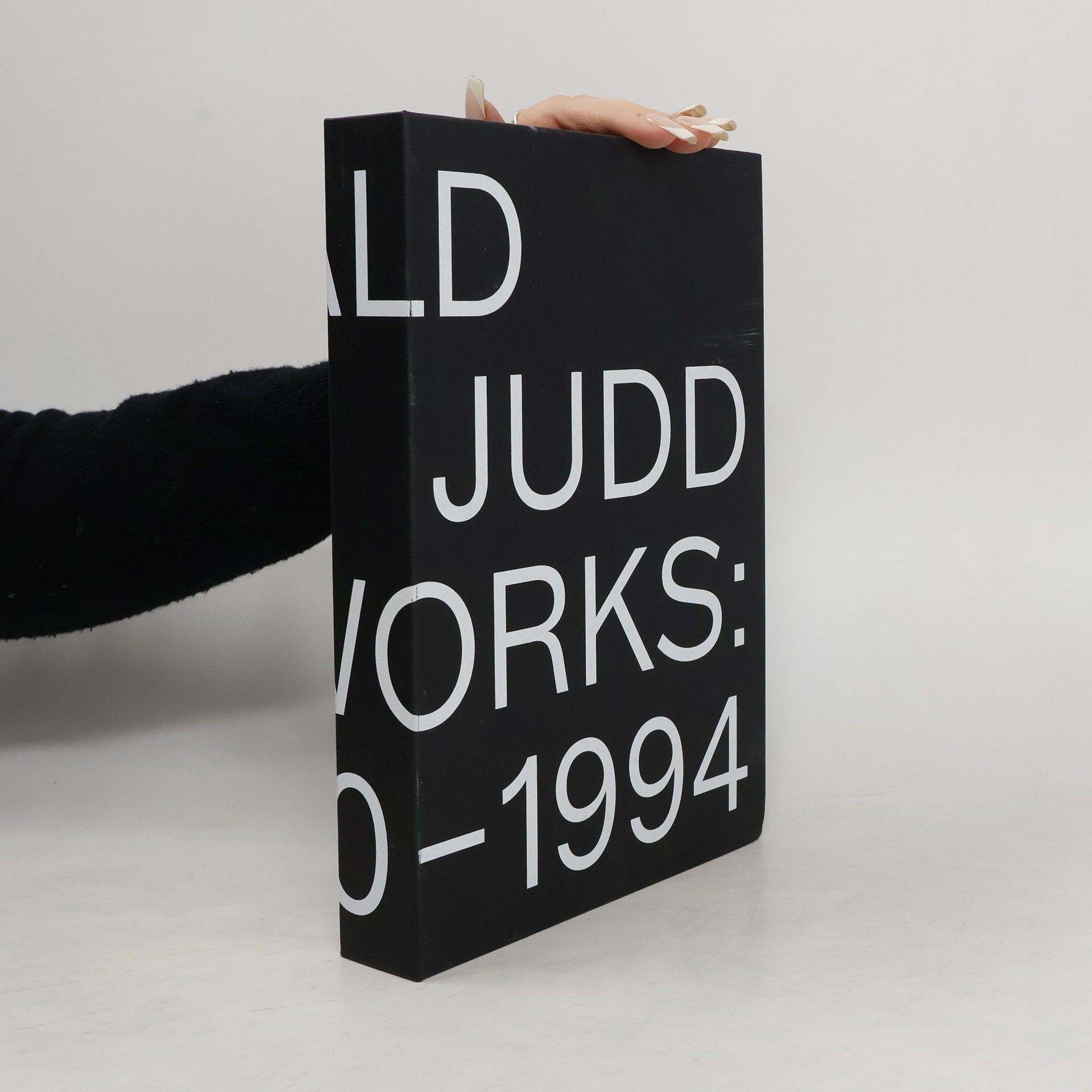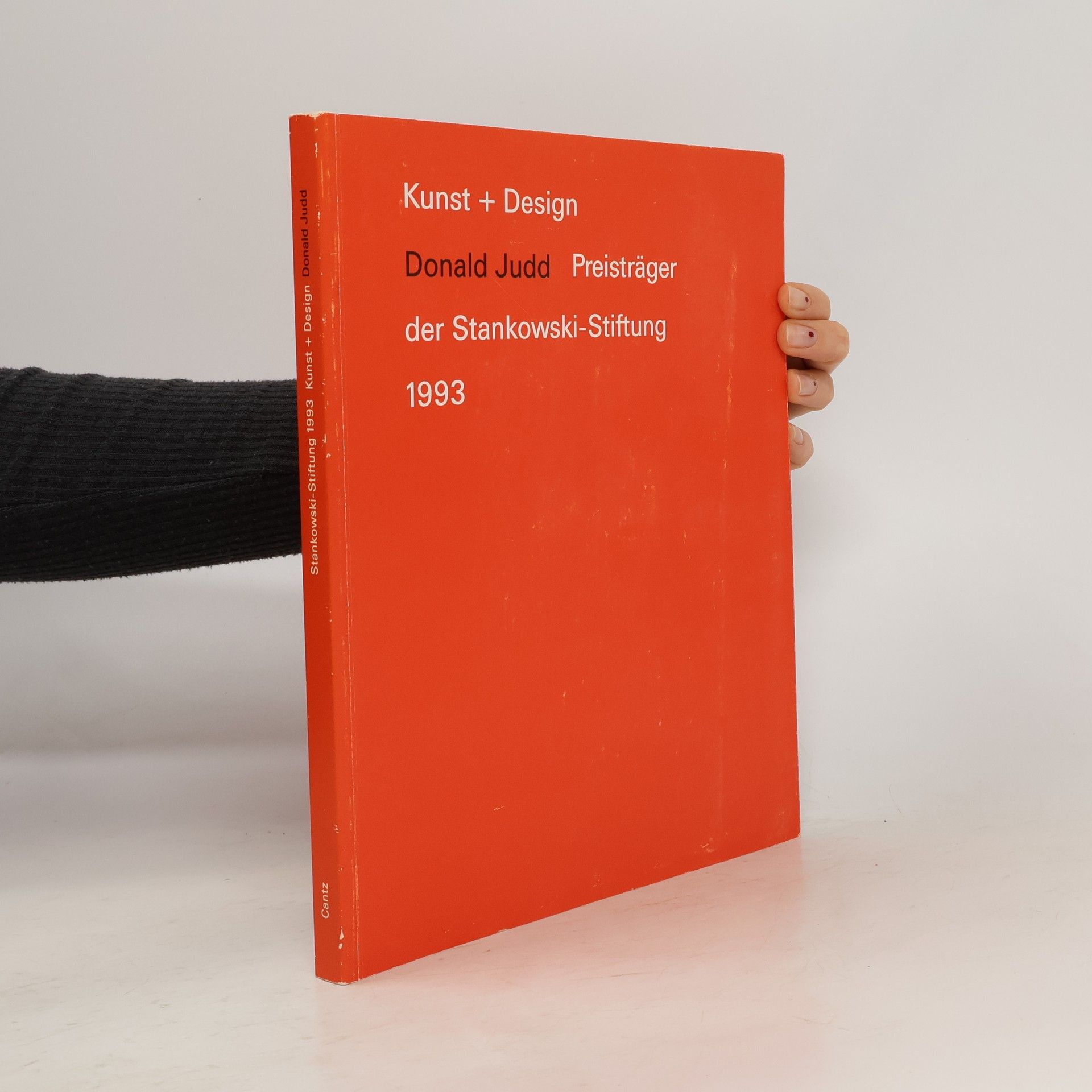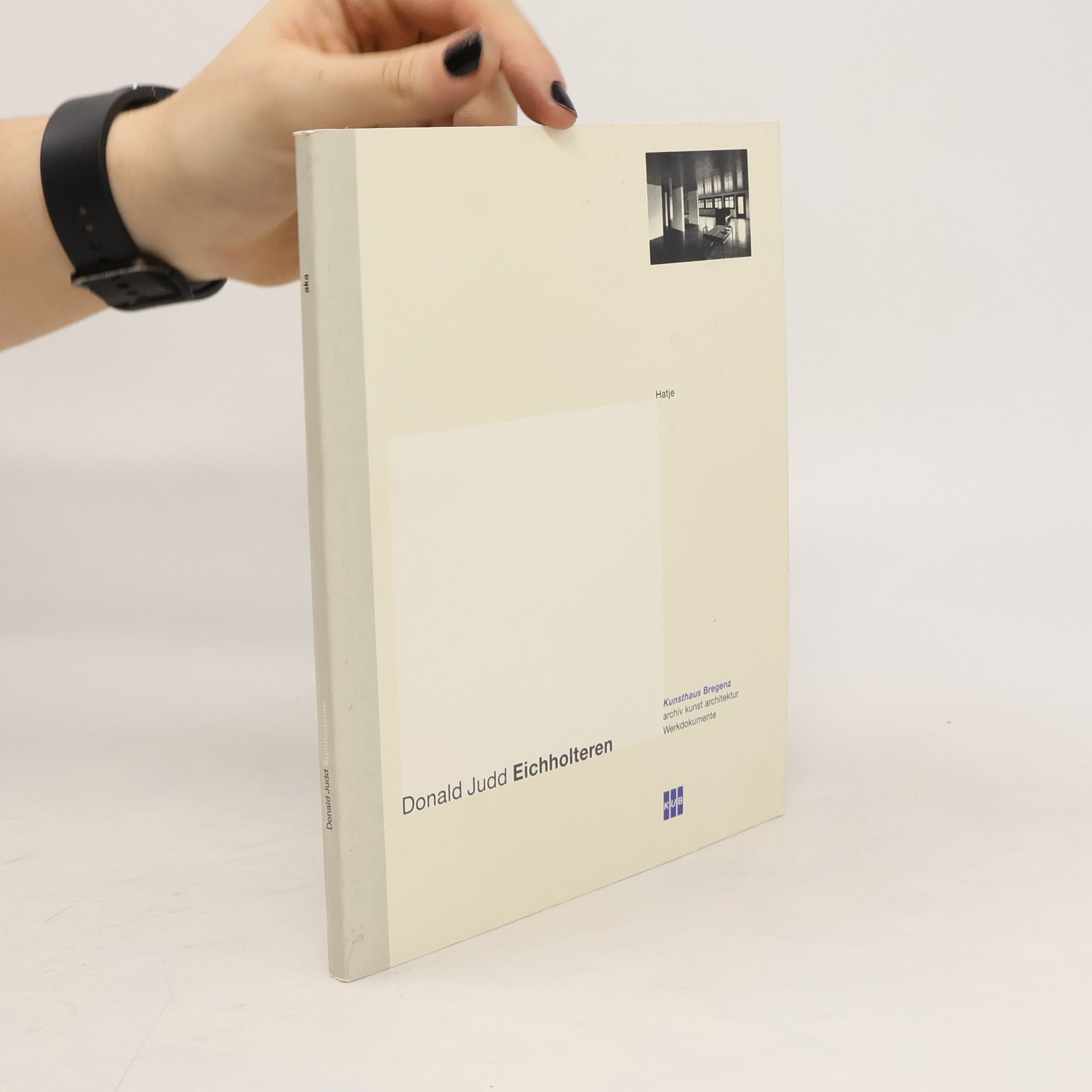Donald Judd Bücher
- Jaddo, Donarudo
- Judd, Don
3. Juni 1928 – 12. Februar 1994





Donald Judd: Artworks 1970-1994
- 284 Seiten
- 10 Lesestunden
Featuring a comprehensive array of Donald Judd's renowned and groundbreaking artworks, this collection also includes a variety of newly commissioned writings that explore his impact and philosophy. The book offers insights into Judd's artistic vision and the significance of his contributions to contemporary art, making it a valuable resource for both enthusiasts and scholars.
Chefs-d'œuvre ?
- 570 Seiten
- 20 Lesestunden
Chefs d'uvre L'exposition d'ouverture du centre Pompidou-Metz.